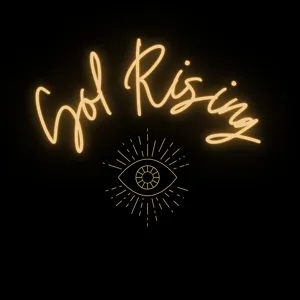Podcast Summary
Emotional Agility: Deal Effectively with Emotions: Emotional agility is the ability to effectively deal with thoughts, emotions, and stories, making choices that align with values, and being present with experiences as valuable data.
Emotional agility is a crucial skill for navigating the complexities of life. Psychologist Susan David explains that emotional agility involves being able to deal effectively with our thoughts, emotions, and stories, without getting stuck in them. It's about being present with our experiences, using them as valuable data, and making choices that align with our values. In today's fast-paced world, it can be challenging to be healthy, both personally and societally. There's pressure to be upbeat and positive all the time, which can make it difficult to acknowledge and process negative emotions like sadness, grief, and fear. However, it's important to remember that these emotions are a natural part of the human experience and can provide valuable insights. Emotional agility allows us to be more resilient, adaptable, and authentic in our lives, enabling us to thrive in various aspects of our personal and professional worlds.
Struggling with judgment of emotions: Embrace all emotions with compassion, dropping the struggle for judgment to fully engage with emotional experiences
Our societal and familial conditioning can make it difficult to embrace and understand the full range of our emotions, leading us to judge some as "good" or "allowed" and others as "bad" or "forbidden." This struggle with judgment only adds to the pain and difficulty of experiencing emotions, rather than allowing us to fully process and move through them. Emotional agility, on the other hand, encourages us to show up to our emotions with compassion, recognizing that all emotions are valid and deserving of acceptance, regardless of their perceived place in a hierarchy. By dropping the struggle with judgment, we can begin to move beyond the tug of war and fully engage with our emotional experiences, allowing us to better understand and respond to them.
Recognizing and responding effectively to emotions: Emotional agility is the ability to be open to our emotions and learn from them, rather than trying to suppress or be consumed by them. It's an essential skill for managing uncertainty and thriving in young adulthood.
When faced with difficult emotions, we often respond by either bottling them up or brooding on them. However, emotional agility suggests recognizing that neither response is helpful. Instead, we can end the struggle and bring important emotional capacities to make sense of these emotions in healthy ways. Susan David emphasizes that these emotions, although uncomfortable, are not inherently bad. By acknowledging and responding to them effectively, we can navigate life's challenges more effectively. Emotional agility is about being open to our emotions and learning from them, rather than trying to suppress or be consumed by them. It's an essential skill for managing uncertainty and thriving in young adulthood. As Meg Jay, the clinical psychologist featured on Adam Grant's podcast, Rethinking, notes, uncertainty is a common struggle for 20-somethings, and emotional agility can help us navigate those challenges and make the most of our young adult years.
Understanding difficult emotions through their needs and values: Emotional agility involves recognizing the needs and values behind difficult emotions and practicing self-compassion to navigate them effectively.
Instead of trying to suppress or ignore difficult emotions, we should try to understand what needs or values they are signaling. This practice, known as emotional agility, involves turning inward and asking ourselves what emotional experiences are trying to tell us about our needs and values. For example, boredom might indicate a need for growth, loneliness might indicate a need for connection, and grief might indicate a need for love and healing. Another important tool for emotional agility is self-compassion. Self-compassion is not about being weak or lazy, but rather recognizing that being human is challenging and that we all make mistakes and experience difficult emotions. By practicing self-compassion, we can learn to be kind and understanding towards ourselves, which can help us navigate emotional challenges more effectively. In summary, emotional agility and self-compassion are two powerful tools for improving our emotional intelligence and navigating the complexities of human emotions. By practicing these skills, we can learn to respond to difficult emotions with curiosity and compassion, rather than judgment and avoidance.
Identifying Specific Emotions for Emotional Agility: Recognizing specific emotions leads to emotional agility, deeper self-understanding, and improved emotional intelligence.
Recognizing and accurately labeling our emotions, also known as emotion granularity, is a crucial skill for emotional agility and overall well-being. We often use broad labels like "stress" to describe our feelings, but there can be significant differences between various emotions. By identifying specific emotions, we can better understand ourselves and respond effectively. This skill, which is not commonly taught, can help us be more empathetic towards ourselves and others, and enable us to navigate complex situations with greater agility. So, next time you feel stressed, take a moment to consider if it might be something else, such as disappointment or feeling unsupported. This simple yet powerful skill can lead to a deeper understanding of ourselves and improve our overall emotional intelligence.
Understanding the root causes of symptoms for better quality of life: Exploring the root causes of symptoms can lead to effective solutions and improved quality of life. Claritin D offers fast relief for allergy sufferers, while addressing alcohol consumption as a coping mechanism can bring unexpected benefits.
Understanding and addressing the root causes of our symptoms can lead to significant improvements in our quality of life. I used to believe that my allergy symptoms were just a normal part of life, but after discovering Claritin D and its powerful relief, I realized how much better I could feel. Similarly, I came to understand that my alcohol consumption was a coping mechanism for social discomfort, and giving it up led to unexpected benefits. It's essential to approach our symptoms and emotions with granularity, rather than in broad strokes, to find effective solutions. Claritin D provides fast and powerful relief for allergy sufferers, while Apple Card offers daily cashback rewards for various purchases. And sometimes, making small changes in our lives can lead to significant improvements overall. So, whether it's allergies or other issues, take the time to understand the root causes and explore potential solutions.
Identify root cause of emotions and needs with granularity: Instead of applying vague solutions to amorphous problems, identify specific needs or values to make meaningful changes in daily life
In order to effectively address the challenges we face in our lives and make meaningful changes, it's crucial to identify the root cause of our emotions and needs with granularity. Instead of applying a vague solution to an amorphous problem, we should aim to understand the specific needs or values that are being signaled. Values are not just abstract concepts, but rather qualities of action that we can act upon in our daily lives. For instance, if you're feeling lonely, recognizing that need for intimacy and connection can lead to small, daily choices that move you towards your values. So instead of putting up more barriers and becoming more closed off, you might choose to engage in small moments of connection with others, such as having a meaningful conversation with your spouse during your daily coffee break. By focusing on these granular moments, we can make significant progress towards living a more fulfilling life.
Understanding and responding to emotions for deeper connections: Emotional agility lets us recognize emotions as signposts, shape environments to meet needs, and deepen connections to self and others.
Emotional agility is the ability to recognize and respond to our emotions in a way that brings us closer to our values. This means understanding that emotions are signposts for our needs and having the capacity to shape our environments to meet those needs. Toxic positivity, or false positivity, is an avoidant coping strategy that turns our back on reality and pretends to be happy all the time. Instead of developing skills to deal with the complexities of life, we deny our emotions and fail to develop essential skills. Emotional agility allows us to connect with others and ourselves more deeply, bringing us closer to the things we value.
Navigating emotions skillfully: Emotional agility helps us respond to emotions in a beneficial way, leading to better relationships, increased resilience, and overall well-being
The importance of emotional agility in our lives. Dr. Susan David, the guest on the show, emphasized the need to move through emotions rather than being held back by them. Emotional agility is the ability to navigate emotions skillfully and respond to them in a way that is beneficial for ourselves and those around us. This can lead to better relationships, increased resilience, and overall well-being. The TED team members who introduced the episode highlighted their own emotional flexibility, dexterity, nimbleness, acrobatics, and adroitness as examples of emotional agility in action. The show is supported by Brooks Running, which provides lightweight and cushioned shoes for runners, and Odoo, an affordable all-in-one business management software. So, whether you're running or managing a business, emotional agility can help you be a better human in all aspects of your life.






